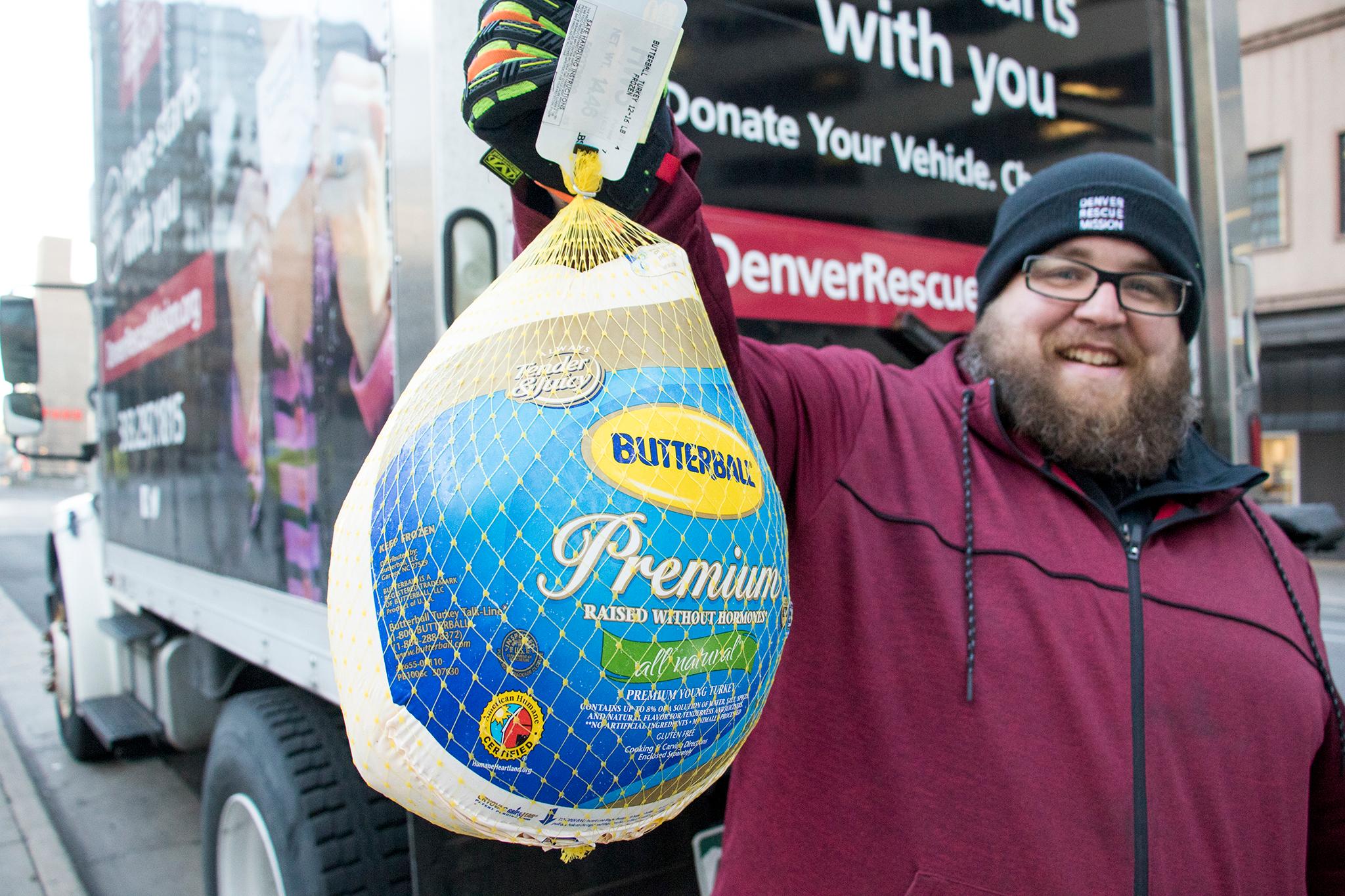
Almost everything has gotten a little more expensive this year thanks to inflation. Turkeys, the centerpiece of many Thanksgiving dinner tables, weren’t spared.
The cost of a classic Thanksgiving meal — including turkey, pie ingredients and stuffing — is up 20 percent from last year, according to the Colorado Farm Bureau. Don Peterson, who sells turkeys raised on his family’s farm, said his prices rose from $2.49 per pound to $3.29 per pound.
“They went up with the shipping and everything, gas prices and everything else,” Peterson said. “And the price of grain has went up so much.”
Gas prices peaked over the summer when some areas in Colorado saw average prices well over $5 a gallon. That resulted in higher feed prices, making it difficult for some turkey farmers in Colorado to keep up. Joan Walton had been selling organic, farm-raised turkeys she raised herself since 2014, but recent prices forced her to shutter her business and move to Missouri.
“It was pretty difficult to source this year. In fact, it was so difficult and the prices were up so high, I knew I could never sell the turkeys,” Walton said. “We moved to a different state and now we're just having a homestead.”
Both Peterson and Walton’s turkey typically sell for a higher-than-average price, but that’s mainly because of their free-range, local value. Most grocery stores are selling non-organic turkeys for less than $2 per pound, but even that price is higher than in previous years.
This year, it’s proven difficult for food banks to stock annual turkey drives for families in need. Denver Rescue Mission spokesperson Stephen Hinkel said they only had enough food to meet the demand because of bird donations from the community. Even once it turned to monetary donations set aside specifically to buy turkeys, the Mission hit price hurdles.
“That has definitely made us be more creative in terms of where we can find places to purchase our turkeys. Other partners that we've typically used just can't sell us as much as they used to because their inventory is down,” Hinkel said.
The Food Bank for Larimer County fell short of its goal to collect 7,140 turkeys, but a lighter-than-expected demand meant they were able to provide meals to everyone who wanted one. Ham donations helped fill the gaps. Food Bank spokesperson Steven Berry said normally, they receive a few dozen every year.
“So far, we're at over a hundred or maybe even 150 hams that we've received instead of turkeys,” Berry said last Thursday. “So we're seeing people still try to participate with whatever they can get their hands on.”
Another national factor is the ongoing avian flu outbreak among wild and domestic birds. Experts have warned that as the outbreak continues, it may impact the supply chain and prices if turkey flocks are affected. The virus’ impact in Colorado seems to be limited, however. Colorado’s Department of Agriculture hasn’t reported any outbreaks among turkey flocks. The vast majority of cases in the state have affected commercial chicken flocks and wild ducks.









